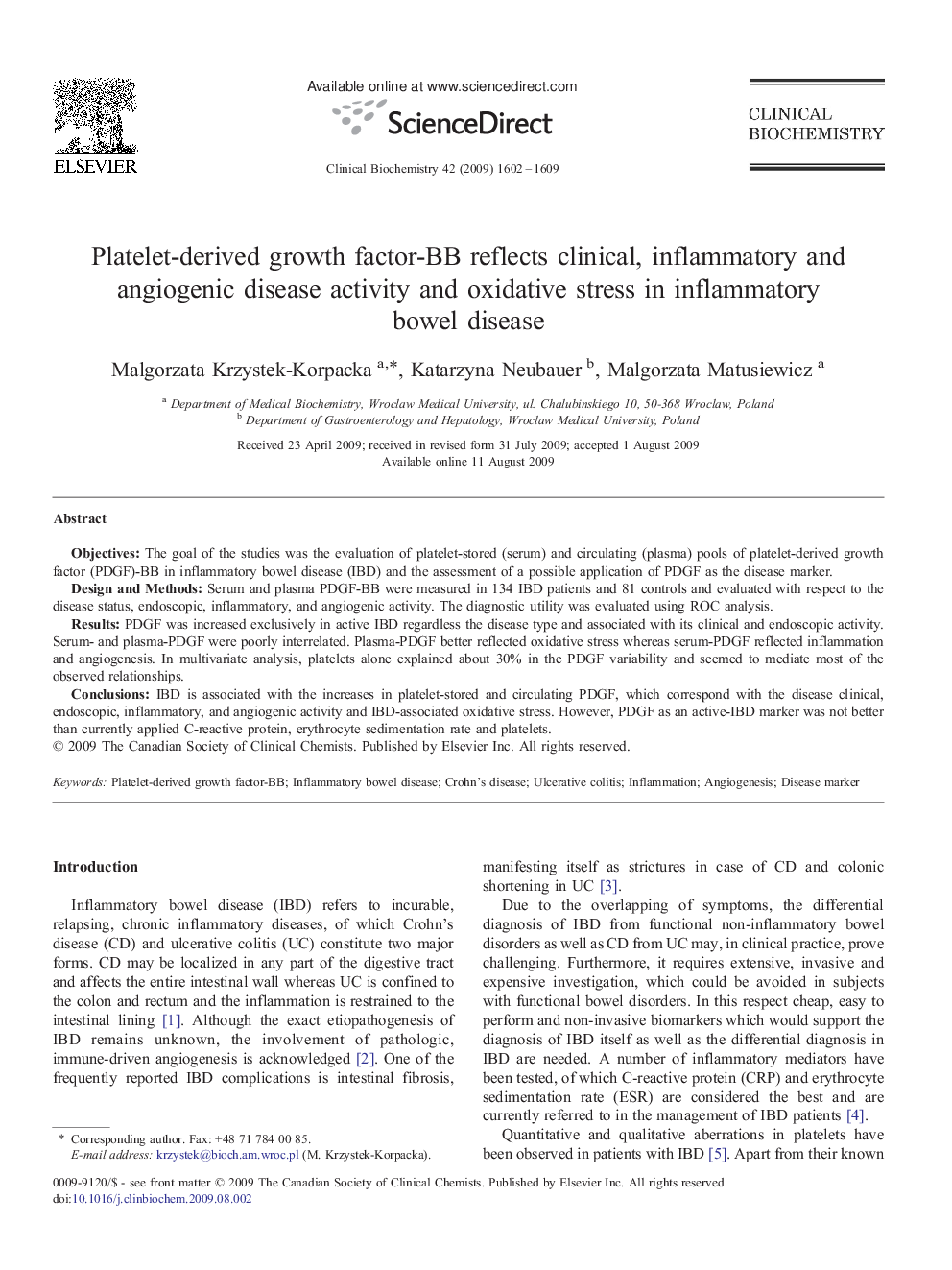| Article ID | Journal | Published Year | Pages | File Type |
|---|---|---|---|---|
| 1970794 | Clinical Biochemistry | 2009 | 8 Pages |
ObjectivesThe goal of the studies was the evaluation of platelet-stored (serum) and circulating (plasma) pools of platelet-derived growth factor (PDGF)-BB in inflammatory bowel disease (IBD) and the assessment of a possible application of PDGF as the disease marker.Design and MethodsSerum and plasma PDGF-BB were measured in 134 IBD patients and 81 controls and evaluated with respect to the disease status, endoscopic, inflammatory, and angiogenic activity. The diagnostic utility was evaluated using ROC analysis.ResultsPDGF was increased exclusively in active IBD regardless the disease type and associated with its clinical and endoscopic activity. Serum- and plasma-PDGF were poorly interrelated. Plasma-PDGF better reflected oxidative stress whereas serum-PDGF reflected inflammation and angiogenesis. In multivariate analysis, platelets alone explained about 30% in the PDGF variability and seemed to mediate most of the observed relationships.ConclusionsIBD is associated with the increases in platelet-stored and circulating PDGF, which correspond with the disease clinical, endoscopic, inflammatory, and angiogenic activity and IBD-associated oxidative stress. However, PDGF as an active-IBD marker was not better than currently applied C-reactive protein, erythrocyte sedimentation rate and platelets.
